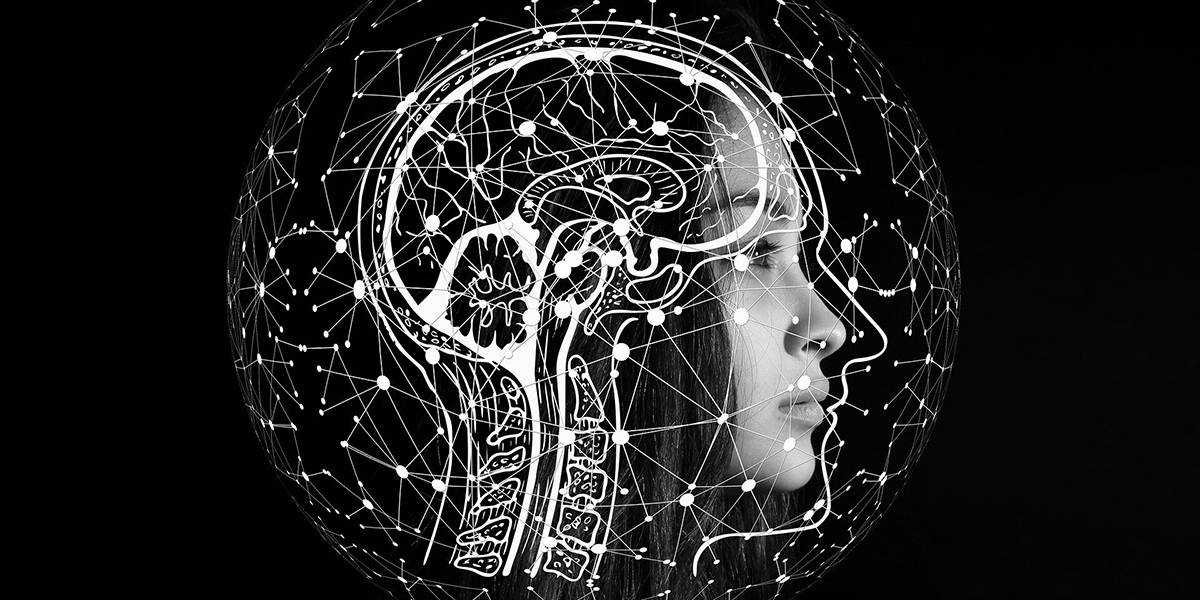Gabriella Waters of the Center for Equitable AI & Machine Learning Systems and Jhillika Kumar of Mentra discuss technologies for neurodiverse populations.

The November 8 SoDa Symposium included guest speakers Gabriella Waters of the Center for Equitable AI & Machine Learning Systems and Jhillika Kumar of Mentra, and was moderated by UMD Senior Faculty Specialist/Disability Lead Nancy Forsythe.
Presentation 1: Reimagining Variance – AI and Neurodiverse Populations, by Gabriella Waters
Abstract: Artificial intelligence (AI) has experienced exponential growth in application and innovation, and we’re only at the tip of the iceberg in exploring the many ways in which this technology can be deployed. Despite AI’s far-reaching influence, there are still populations that cannot access or engage with these technologies in a meaningful way. Neurodiversity isn’t always considered when designing the systems AI supports. As the methods used to diagnose and assess diverse neurological presentations become more sensitive and sophisticated, the need for attention to, and inclusion of neurodiverse populations is an area of significance. Given what we know about artificial intelligence, how can we capitalize on the strengths of the technology to ensure it is accessible for as many people as possible? With what we know about neurodiversity, how can we inform the development of new intelligent systems?
Bio: Gabriella Waters is a data scientist, cognitive researcher, and the founder of Progressive Heuristics – a tech company focused on innovations that make artificial intelligence and neural network technologies more accessible and equitable across all populations. She is also the Director of Public Relations for Morgan State University’s Center for Equitable AI and Machine Learning Systems (CEAMLS). In her research, Gabriella is interested in studying the intersection between human neurobiology/learning and intelligent systems that make use of that foundation for improved human-computer synergy. She develops technology innovations, with an emphasis on support for neurodiverse populations, as well as the creation of more robust systems that function in the absence of human interaction.
Presentation 2: Empowering the Neurodiverse Workforce of the Future, by Jhillika Kumar
Abstract: At Mentra, we believe it is time that hiring platforms serve the neurodiversity of the human population. Today’s algorithms often screen out candidates primarily based on education background and employment history. This approach fails to take into account aptitude and non-traditional measures of success which can make or break a good job fit for a neurodivergent. To turn these barriers into bridges, Mentra’s platform collects holistic data on cognitive strengths, aptitude, and environmental sensitivities, and accommodations, avoiding the typical “screen out” of those who think differently. By considering data that goes far beyond the resume, Mentra’s AI determines a candidate’s likelihood of success in a particular role by maximizing job retention and job fulfillment. By showcasing a multi-dimensional profile to companies, Mentra acts as a translation layer between employers and neurodivergent professionals who may not display the behavior and experiences recruiters are accustomed with, unlocking a talent pool that has been immensely overlooked.
Bio: Jhillika Kumar is the founder and CEO of Mentra, Georgia Tech founder, and honorary degree recipient, and previous Grace Hopper Keynote speaker for neurodiversity empowerment. Her experiences as the sister of a non-speaking autistic individual served as a catalyst for Jhillika to found Mentra at the Georgia Institute of Technology to search for a solution to the need to empower those who society often overlooks.
You can watch the November 8 SoDa Symposium below or on YouTube.